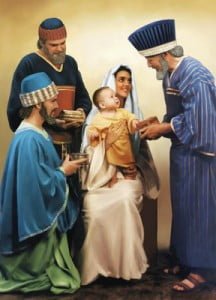Shepherds and Academics
Shepherds and academics do not appear to have a lot in common, but I grew up on a small sheep farm and later became an academic. Both jobs can be quite lonely at times. I can remember as quite a young lad having to go around our small flock of about 200 sheep in the evening, checking that they were OK. In stormy weather in the lambing season I would ensure that lambs were with their mothers, and not wandering around on their own. It was cold lonely work.
I grew up and left the farm behind and became an academic. Designing experiments, analysing data, drawing conclusions and communicating those conclusions to others has consumed a large part of my life. I spent long evenings thinking about ideas and arranging those ideas to make sense so that other people would understand them. Both jobs have their “eureka moments” when something happens and you want to tell everyone what has happened. I can remember watching a lamb being born and waiting until it had struggled to its feet and was suckling from its mother. I can remember too in academic life when I made the connection in my research that represented a breakthrough. Both events were something that I had to share with others.
Consequently I find that I have something in common with the two very different groups of people who were selected to be told that Jesus was born. The shepherds, watching their flocks by night, were confronted by an angel with a message, followed by the spectacle of a heavenly choir. Their world was turned upside down by the news and they wasted little time in visiting the newborn Jesus. (Luke 2: 8-20)
The academics studying their books and the astronomy charts followed a new star from a far country determined to greet the Jesus with gifts appropriate for a king. Nobody knows how long they searched or how far they travelled to find Jesus. (Matt 2: 1-12)
It is that season of the year when we are reminded about shepherds and academics. The songs, “While Shepherds watched”, “We Three Kings” and other well known carols are often played as a relentless background in shopping centers. Churches and parks display tableaus of the manger with the baby Jesus surrounded by rough shepherds in their farm clothes, or the crib with the young Jesus adored by the well-dressed academics in their academic regalia. Often the significance of the presence of these two groups of people are lost in the consumerism that surrounds these songs and scenes today.
The shepherds and the academics came not just to see a baby but to be witnesses to a turning point in history. The invitation to visit Jesus is still with us today, not to admire a cute newborn baby, but to be changed by the encounter. Whether we come to Jesus by “accident”, or by careful research and study, the challenge is for us to be changed.
Seventh-day Adventists do not worship Christmas, but it is a measure of our Christianity that we accept the invitation to visit with Jesus and be changed by the encounter and share the invitation with others.

